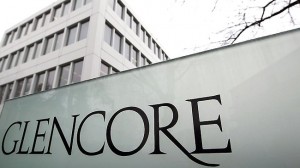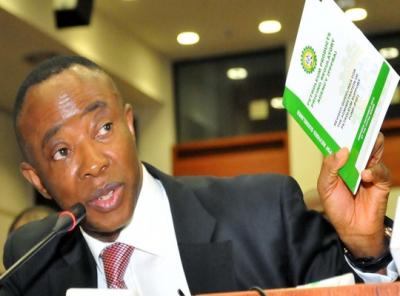Nigeria seeks Swiss help in $6.8 bln fuel subsidy probe
Nigeria has sought Switzerland’s help in the West African nation’s investigation of a multi-billion dollar fuel subsidy scam, after some Swiss oil trading houses refused to cooperate with the authorities in Abuja, Nigerian officials said.
Nigeria opened an investigation in January into fraud in the administration of the subsidy scheme after an abortive attempt to remove it by President Goodluck Jonathan.
Ibrahim Lamorde, chairman of Nigeria’s Economic and Financial Crimes Commission which is investigating the fraud, said a request was sent to Swiss authorities in October after some trading houses declined to provide documents.
“They are not forthcoming. And most of the information is not in their Nigerian offices,” Lamorde told Reuters on Friday. He declined to name the companies which did not cooperate.
Lamorde’s commission is trying to unpick a web of collusion between fuel importers and corrupt officials that has led to the state paying for nearly double the amount of fuel it receives.
Asked if trading houses were themselves complicit in the fraud, he said: “We just want information to confirm some of the things the (Nigerian fuel) marketers have said … whether they sold such products to the Nigerians or not.”
A parliamentary probe put the cost of the fraud to the Nigerian state at $6.8 billion between 2009 and 2011, almost a quarter of the national budget.
As a result of the probe some Nigerian fuel importers have been charged in courts but no one has yet been convicted, and most of the targets have been relatively low level, rather than big players. Some are on the run.
The judicial authority for Geneva, home to many private trading houses, said Switzerland had requested additional information on the probe from Nigerian authorities.
“This case involves suspected subsidy fraud on imports of refined products by Nigerian companies. They acquired the oil from companies based in Geneva,” a spokeswoman for the authority said in an emailed statement to Reuters.
She added that Geneva-based trading houses were not directly implicated in the Nigerian investigation.
She did not name the companies involved in shipments. Past suppliers have included many large Swiss-based private trading houses. Swiss-based Nimex Petroleum was suspended earlier this year by Nigeria’s fuel regulator for failing to provide documents for shipments.
Nigeria is Africa’s top oil exporter but it imports most of the fuel it consumes because its refineries are ill-maintained and run at a fraction of their capacity. The government buys the fuel then sells it to the public at cheap, subsidised prices.
Private Nigeria-based fuel marketers are thought to have abused the country’s subsidy system by misreporting fuel volumes, for example by reporting the same cargo more than once in a practice known as “round-tripping.”
Some of this fuel was sourced from tankers chartered by large trading houses anchored offshore Nigeria.
A source at a trading house said some international commodity trading firms had been asked earlier this year to provide paperwork of fuel shipments to Nigerian authorities as part of the probe.
Source: Reuters







